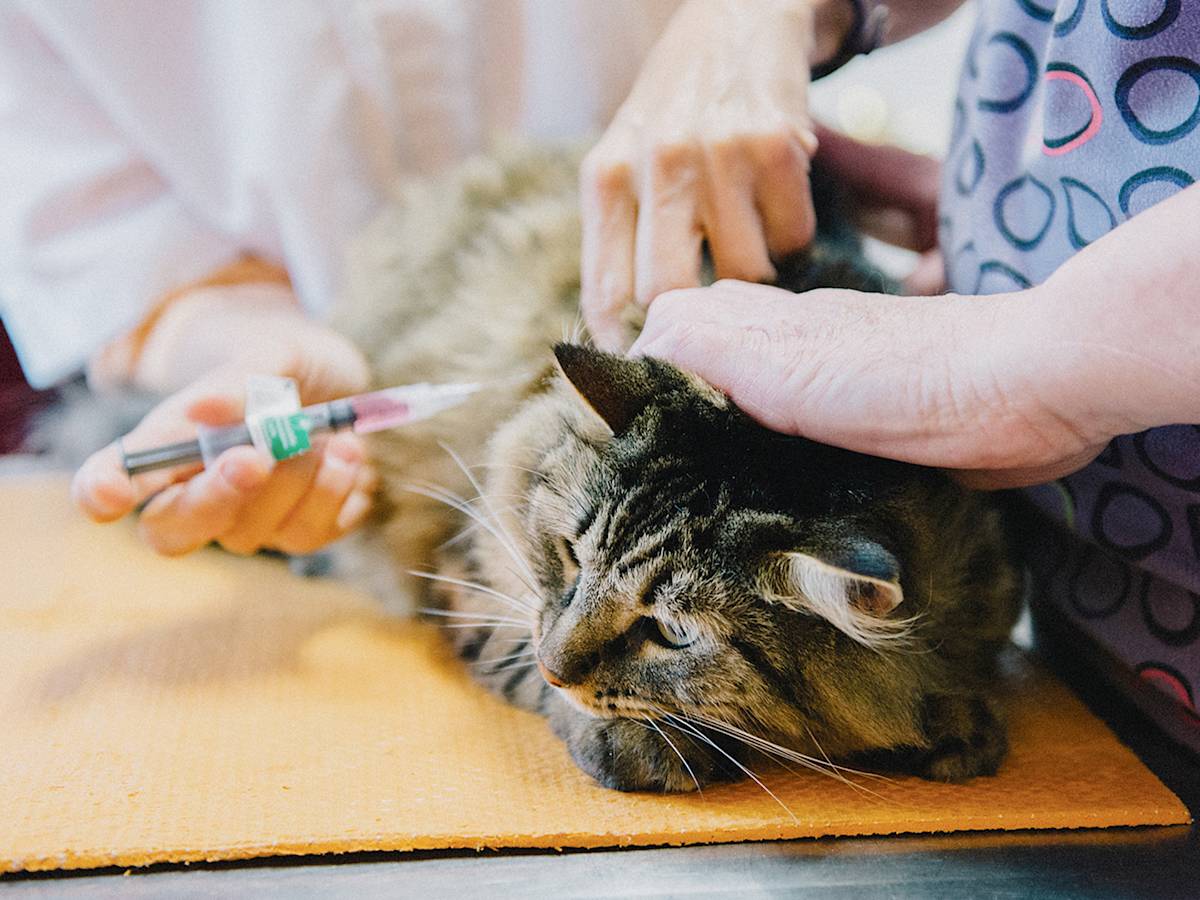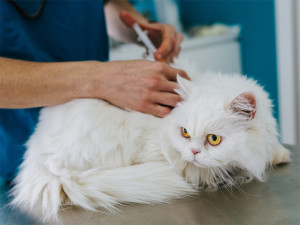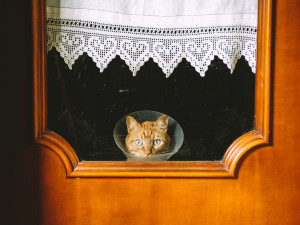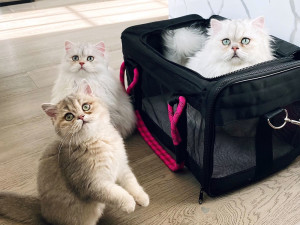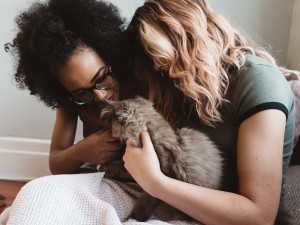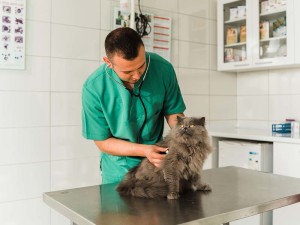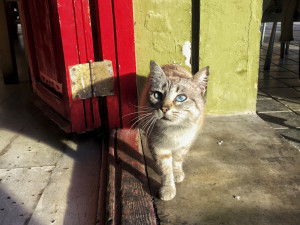Yep, Kittens Need Vaccines (Even Indoor Ones)
A vet gets the facts straight.
No two cats are alike, right? So, when it comes to vaccinating your cat, you’re not wrong to wonder if vaccine recommendations for indoor and outdoor felines are one size fits all — after all, one lot has been chilling solo almost their entire lives, while the other’s been running with a wild crowd. We asked Dr. JoAnna Pendergrass how she calls the shots as cats are concerned. And she confirmed our suspicions: recommendations do differ for indoor vs. outdoor cats. She explains below.
Indoor cats
Rabies
While yours may be a total homebody, there are still a couple of vaccines that indoor cats need. The American Animal Hospital Association (AAHA) recommends that all cats receive what they call “core“ vaccines. “Vaccinations are a highly effective line of defense against diseases that can make cats very ill or even be fatal,” says Dr. Pendergrass. “They are a key component of overall health and wellness for indoor and outdoor cats.” Rabies is perhaps the most well-known diseases we vaccinate our pets for, as it is 99.9 percent fatal for any mammal that contracts it. The chances that your indoor cat will be bitten by a rabid animal may be slim to none, but it’s required by law in most states all the same.
Feline distemper complex
You may have also heard your vet mention feline distemper complex, and no, it’s not a reference to your cat’s moody spells. It’s a collective term referring to a trifecta of potentially deadly diseases: feline calicivirus, viral rhinotracheitis (a.k.a. feline herpesvirus type one), and feline distemper (a.k.a. feline panleukopenia virus). These diseases can cause all sorts of health problems including severe respiratory infections, mouth and facial sores, and gastrointestinal issues. They are also extremely resilient and can be tracked into the house on your shoes or clothes, so even an indoor cat is at risk.
Outdoor cats
Rabies + FeLV
Outdoor cats should have the same vaccinations as indoor cats and then some, since they are likely in contact with stray cats and other wildlife. (Note that these recommendations vary with the age and health of your cat.) Outdoor cats run a much higher risk of being infected with feline leukemia (FeLV) than their indoor counterparts, as the virus is spread through direct cat-to-cat contact. “The vaccine isn’t necessary for adult cats that have a low risk of exposure to FeLV or cats that have already tested positive for the virus (because they already have antibodies),” says Dr. Pendergrass. “That said, the vaccine would be a good idea for an indoor cat that may have been exposed to a FeLV-positive cat or a cat with an unknown FeLV status.”
How much do you spend on your pet per year?
Bordetella + Feline Chlamydia
Some other vaccines to consider are Bordetella, which protects against a respiratory infection that is particularly contagious in young kittens, and feline chlamydial conjunctivitis. Both can typically be cleared up with antibiotics so vaccinating against them is a smart choice for cats that either live with others or are boarded often.
How great would it be (for your cat) if these vaccines were one-and-done affairs? Unfortunately, as the world now knows, “a vaccine is great at providing protection from a disease, but that protective immunity isn’t lifelong. It wears off over time, so booster shots are needed to give the immune system a boost and provide continued disease protection,” says Dr. Pendergrass. “If a cat owner doesn’t bring a cat back in for booster shots, their cat becomes vulnerable to disease all over again.�”
